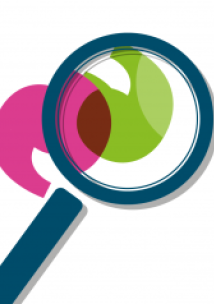Mental Health Report 2022/23

What we found
The key messages of the report include:
- Access to care - access to care can be difficult for people who do not use the internet, or who do not like to use the phone when they are feeling unwell. When English is not a person’s first language, that can be an added barrier.
- Care - care is not always available when it is needed, especially in a crisis. There are long waiting lists for both diagnosis and treatment. Appointments are not always flexible for people who work or have family commitments. Services can be difficult to contact.
- Care provided - care that is provided is not always a positive experience. There can be frequent changes of staff, meaning stories have to be told again, which can be traumatic. Care may not be personalised, and reasonable adjustments are not always made when needed. People told us they can feel judged, and don’t feel they are being listened to. Understanding of the complexities of their overall health (physical and mental) are not always understood by staff. When staff leave, or retire, patients can be left to struggle whilst waiting for their care to be rearranged.
- Carers - carers told us they do not always feel supported. They are not always given enough information to support their family member well, or told who they can talk to if they have questions.
- Communication - communication could be improved. Phone calls are not always returned, or messages passed on. People do not always know who they can contact if their mental health worsens.
- Discharge - discharge from a service can be too early for some people. They told us that a higher number of therapy sessions would have prevented their mental health from worsening, leading to a crisis after the sessions stopped.
- Information - being provided with good information and explanations helps people to learn how to cope for themselves and take control of their mental health. This does not always happen. This includes being kept informed about what is happening and how long they will have to wait to be seen, and the availability of community groups and other support.
- Medication - medication works well for some people, but not for everyone. People told us they have been left taking medication which makes them feel worse, and are unable to get a medication review to look at alternative medication. Other people said they thought medication would help them, but it was not offered.
- Waiting lists - when people are on a waiting list, they told us this can result in additional mental health issues, and no-one checks to see whether their mental health has got better or worse.
- Working together - services do not always work together, whether this be teams within the same organisation, or different organisations who all provide care for a person.
Recommendations
Access to care - our findings showed that access to care is not always straightforward, and people can wait a long time, be referred between services, or have care stopped mid-treatment. It can also be difficult to access emergency care when it is needed. Healthwatch Tameside recommend that care is provided in the right place, with the right service, at the right time and asks that this includes giving consideration to where is the best place to support someone aged 16 – 18, or under 25 with special educational needs. Would children’s or adult services be more suitable? Healthwatch Tameside will follow up with providers in 6 months.
Communication - our findings showed that communication is not always as good as it could be. Healthwatch Tameside recommend that communication is improved (in all forms mentioned in this report), including the provision of information. Staff should actively listen to people and take them seriously, without judging. The way people feel they have been treated has a big impact on whether they consider the experience to be positive or negative. Healthwatch Tameside will ask providers to describe how they have improved the provision of information in 6 months.
Downloads
Download the full report below.
If you need this report in a different format, please email info@healthwatchtameside.co.uk or call 0161 667 2526.
